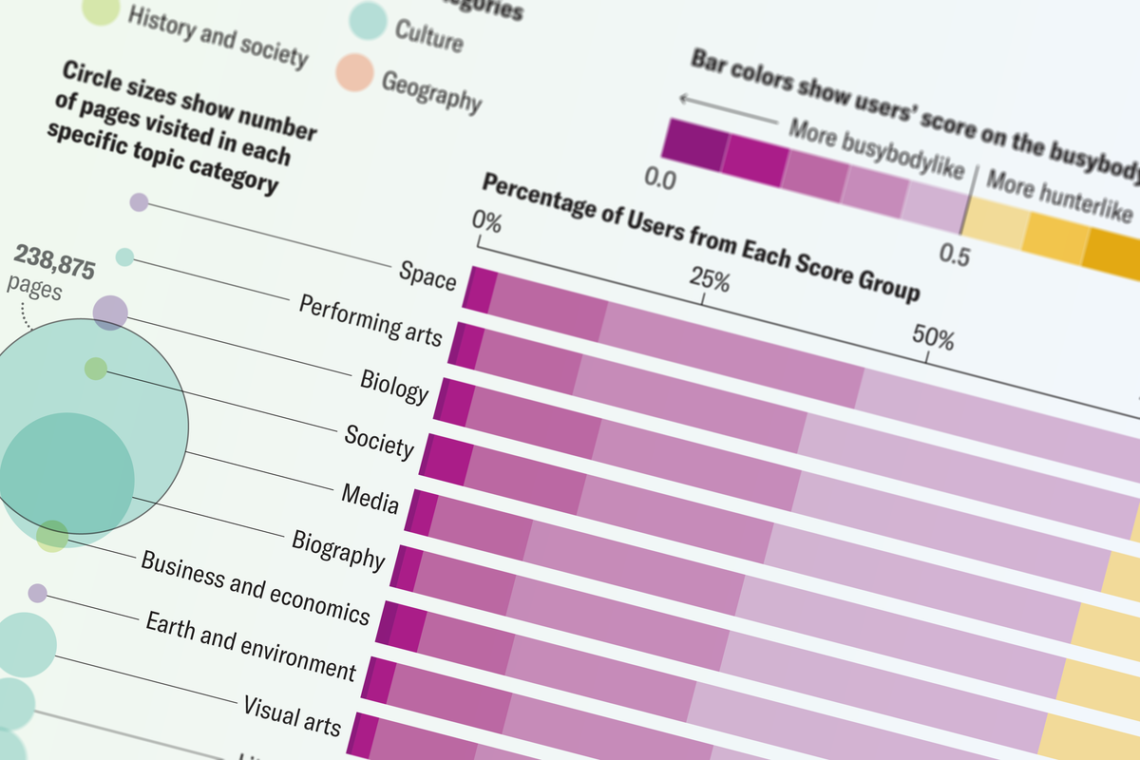December 24, 2024
2 min read
Wikipedia Searches Reveal Differing Styles of Curiosity
Mapping explorers of Wikipedia rabbit holes revealed three different styles of human inquisitiveness: the “busybody,” the “hunter” and the “dancer.”
The website Wikipedia describes curiosity as a “quality related to inquisitive thinking, such as exploration, investigation, and learning, evident in humans and other animals.” But there is a lot more to this prime motivator for so much of human behavior—and Wikipedia, as the world’s largest encyclopedia, is now helping social scientists deepen the definition of curiosity.
Tracing how Wikipedia searchers flit among topics and lose themselves in Wiki rabbit holes revealed three different styles of human inquisitiveness: the “busybody,” the “hunter” and the “dancer.”
“Curiosity actually works by connecting pieces of information, not just acquiring them.” —Dani Bassett, University of Pennsylvania
On supporting science journalism
If you’re enjoying this article, consider supporting our award-winning journalism by subscribing. By purchasing a subscription you are helping to ensure the future of impactful stories about the discoveries and ideas shaping our world today.
In this lexicon, a busybody traces a zigzagging route through many often distantly related topics. A hunter, in contrast, searches with sustained focus, moving among a relatively small number of closely related articles. A dancer links together highly disparate topics to try to synthesize new ideas. “Curiosity actually works by connecting pieces of information, not just acquiring them,” says University of Pennsylvania network scientist Dani Bassett, cosenior author on a recent study of these curiosity types in Science Advances. “It’s not as if we go through the world and pick up a piece of information and put it in our pockets like a stone. Instead we gather information and connect it to…
Read the full article here

